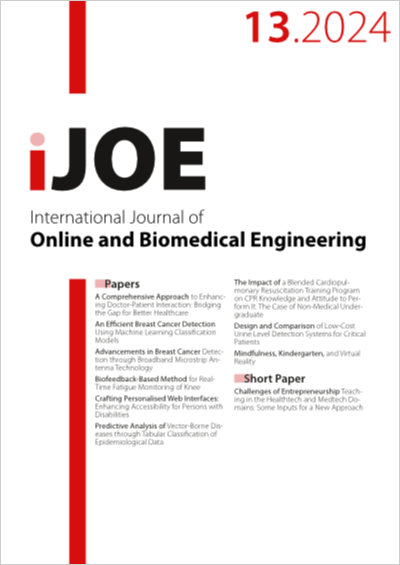Mindfulness, Kindergarten, and Virtual Reality
DOI:
https://doi.org/10.3991/ijoe.v20i13.50445Keywords:
virtual reality, mindfulness, kindergartenAbstract
Mindfulness plays a crucial role in reducing stress levels and enhancing executive functioning and self-regulation. Several studies have shown that technology can have positive effects because it can aid mindfulness training. This review is the second part of a project that investigates the advantages of technology and mindfulness in kindergarten. In the previous section, we examined the role of social robots. However, this review focuses on the use of virtual reality (VR) in mindfulness practices. The objective of our study is to provide a comprehensive overview of the current research on the subject of VR and mindfulness. We aim to examine the possible pros and cons of this technology and, most importantly, inspire more investigation into the application of virtual technology in kindergarten settings. We conducted a systematic review of the literature. The results indicate that VR improves the mindfulness condition. VR settings provide a secure and reliable environment that offers enjoyable experiences for young students. Additionally, they enhance the focus, awareness, and regulation of breathing for the participants. The VR experience should have a simple layout that is easily distinguishable from the actual world. Additionally, the technology used should be appropriate for the target age group. Our primary objective is to inspire further research into the application of VR and mindfulness in kindergarten.
Downloads
Published
How to Cite
Issue
Section
License
Copyright (c) 2024 Panagiota Anagnostopoulou, Athanasios Drigas

This work is licensed under a Creative Commons Attribution 4.0 International License.



